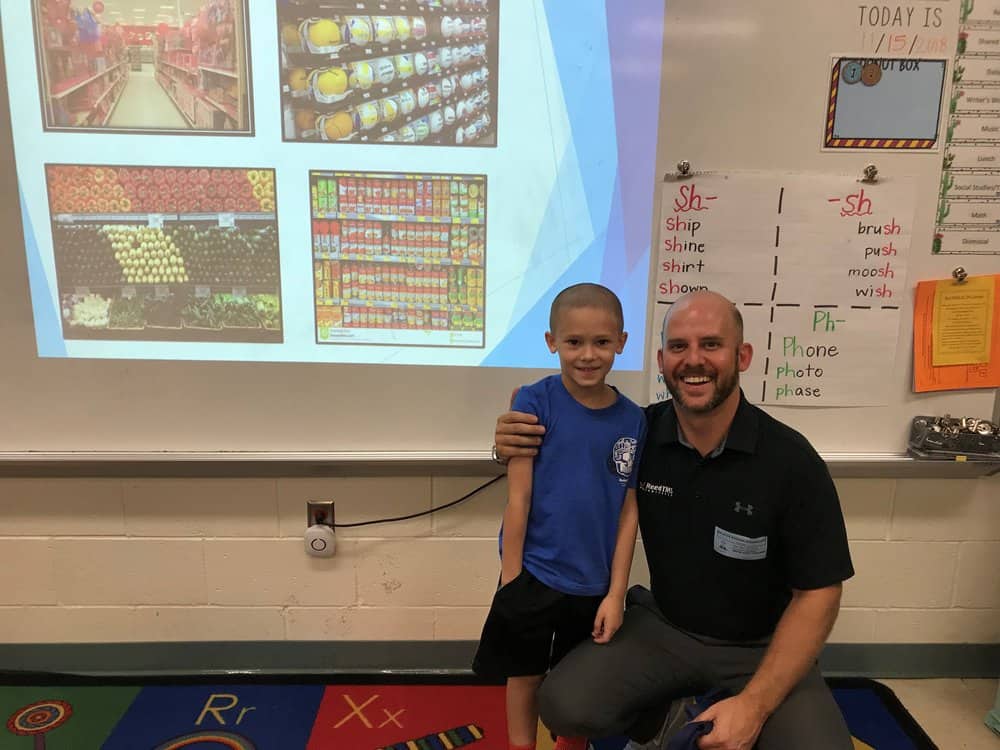It’s never too early to get them started.
There is now a class of first graders in Florida who know all about logistics, compliments of ReedTMS Logistics. Led by Cody Thacker, the company’s director of procurement—who has a son in the school—ReedTMS visited Boyett Springs Elementary School earlier this month in Riverview, Florida as part of The Great American Teach-In. Logistics and the movement of goods to those first graders’ home was on the agenda.
“It was a pretty cool experience, talking to first graders,” Thacker said in talking about the day. “We tried to bring it as close to home as possible. The kids were extremely engaged to see what goes on a truck and how the products they use every day end up in their possession.”
ReedTMS wanted to bring a truck to the school, but that didn’t work out (though the company has brought trucks to similar educational events). They did bring other handouts, but the key message was the back-end systems that brings them “what they eat with, what they play with and what they touch,” Thacker said. “When we related with them on that level, the engagement was extremely exciting and a rewarding experience all around.”
And some of the kids are smart. (The parents would presumably think they all are smart). Thacker said during the question & answer session, one first grader wanted to know how many miles per gallon an average truck got. “It was extremely surprising,” he said. “You’d think they might ask how many Legos go in a trailer. Instead I was asked about miles per gallon.”
Thacker admitted when he sits at his desk at ReedTMS, sometimes “at a desk level it’s hard to quantify what your impact is. But when you get in a group of kids, it shows them the things we do that impact them every single day.”
Jason Reed, the company’s CEO, was asked (wryly) whether ReedTMS’ efforts were the first steps in recruiting the next generation of drivers and other personnel in a tight labor market. No, he answered, but it’s a different kind of future they are interested in. “It really makes you feel good when you see a kid smile, when they don’t have a parent and they are curious about what their future is,” Reed said. “It makes us all feel good when we see if it makes a difference with one child. I don’t want to sound too cliché, but it’s just embedded in our DNA.”
Thacker conceded that when he joined ReedTMS at the age of 23, “I didn’t know anything about it. I didn’t know the industry existed.” And while he said he didn’t expect any first graders to set their sights on a job as a result of a school visit, “maybe their parents are looking for a job.”
The Great American Teach-In is a program adopted in some schools throughout the country (though a web search reveals particularly large engagement in the Tampa area, where ReedTMS is located.) It involves the type of activity that Thacker participated in: coming to a school and teaching the students about what the “instructor” does for a living and how that impacts the students’ lives. Tampa schools have also seen visits through the program by local athletes from the Tampa Bay Rays of Major League Baseball, the Tampa Bay Lighting from the National Hockey League, and the Tampa Bay Buccaneers of the National Football League.











